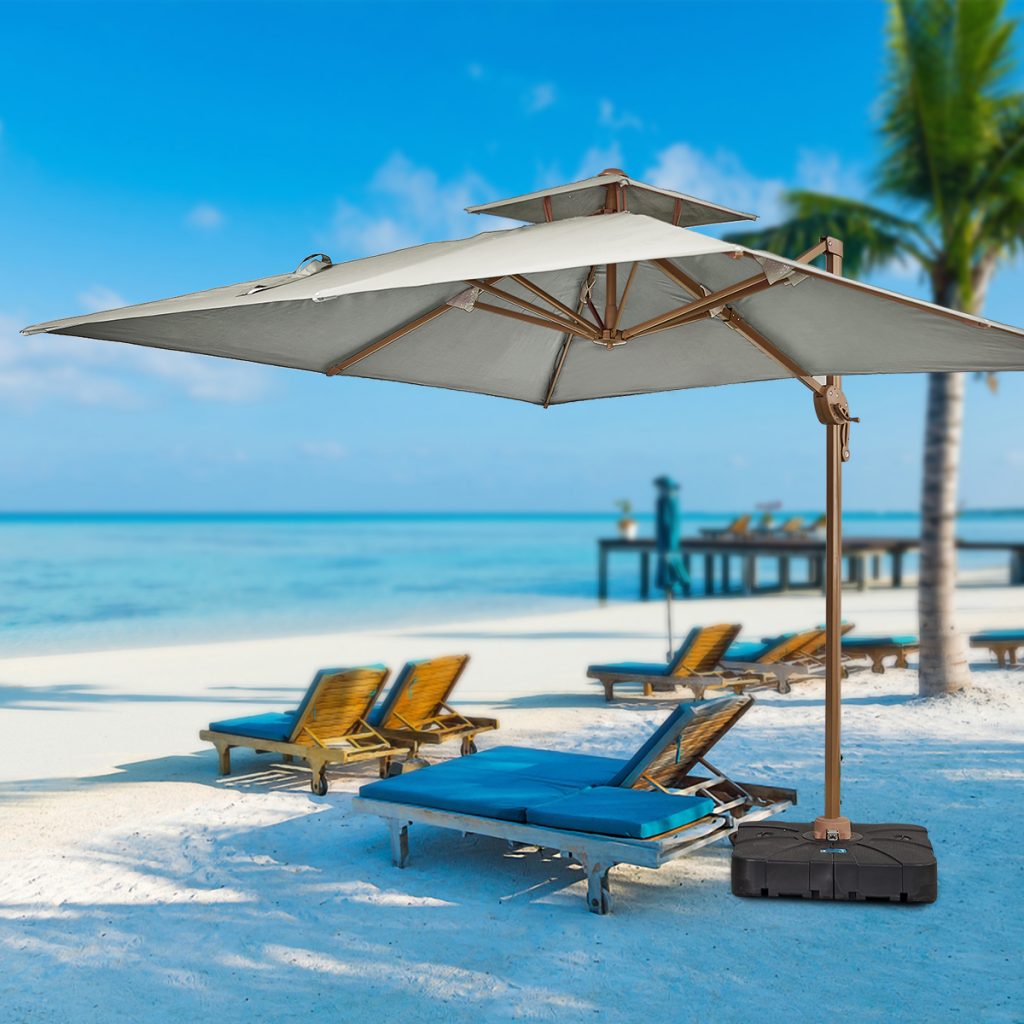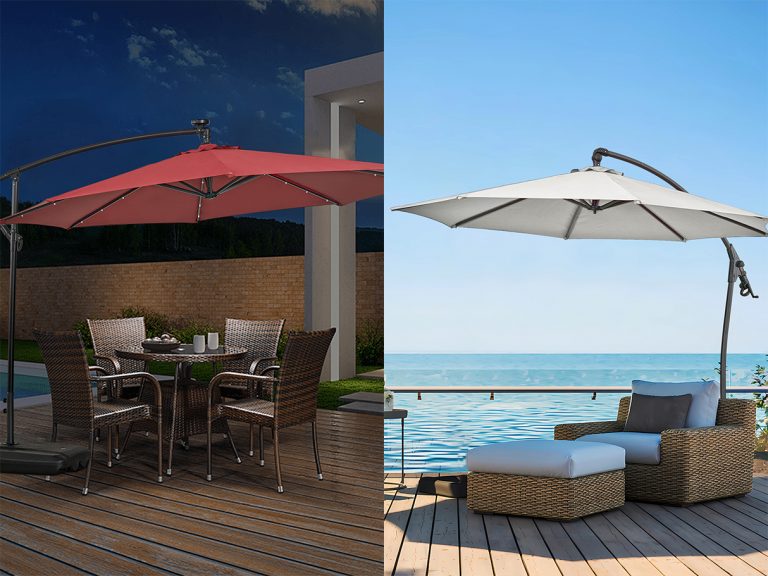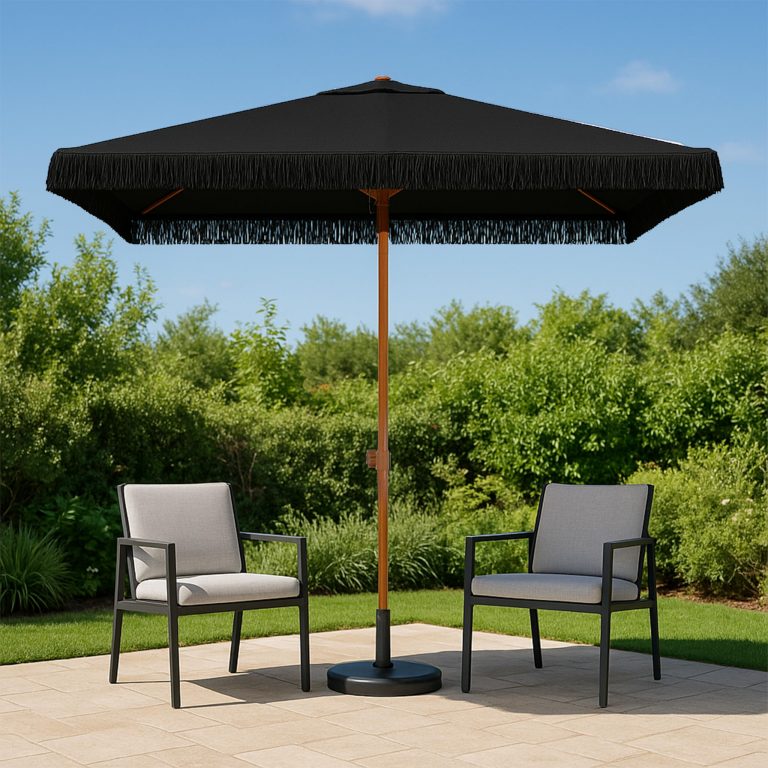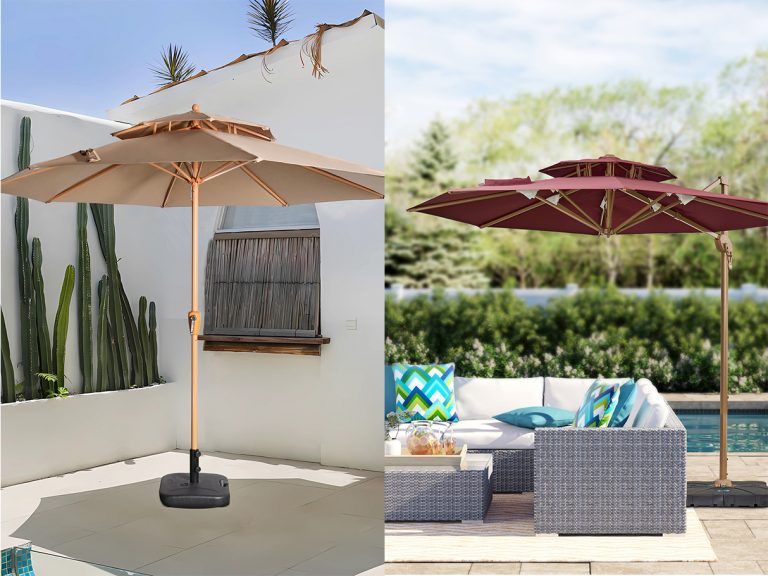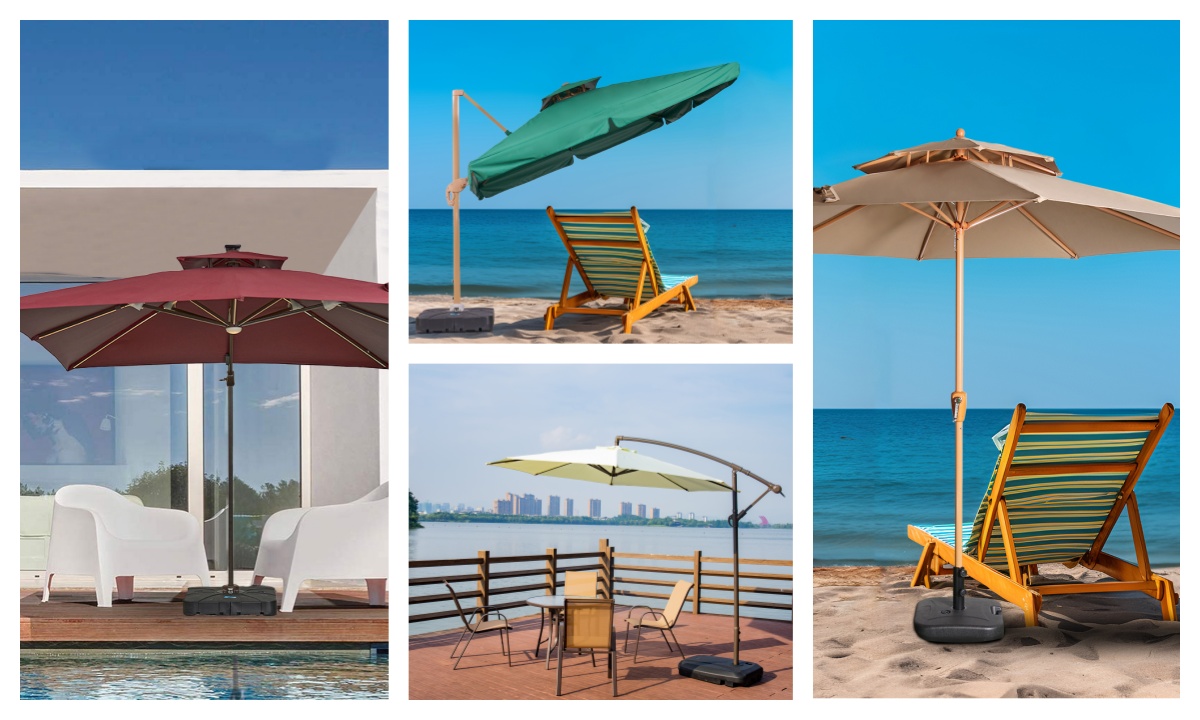
Introduction
From royal courts to beach resorts, parasols have served as both functional shade providers and cultural icons for millennia. At Sunny Parasol, we honor this legacy by blending historical craftsmanship with cutting-edge engineering. Let’s explore how parasols evolved—and why today’s commercial-grade designs owe their durability to ancient innovations.
1. Ancient Origins: More Than Just Shade
Early Civilizations (3000+ BCE)
- Egypt & Mesopotamia: Palm-leaf parasols shaded nobility—first recorded use of UV protection.
- China: Oil-paper umbrellas (still produced today) symbolized wealth, with elaborate hand-painted designs.
Classical Era
- Greece/Rome: Purple silk parasols marked imperial rank.
- India: Sacred gold-embroidered chatras adorned temples and royalty.
Key Insight: Early parasols prioritized status display over practicality—a trend reversed by modern commercial designs.
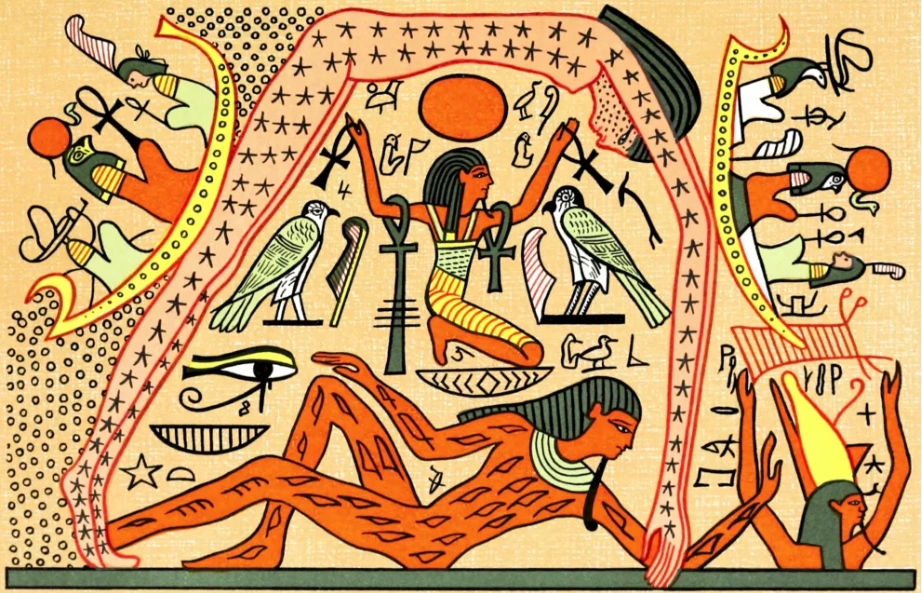
2. Medieval to Victorian: The Rise of Portable Shade
European Adaptation (12th–19th Century)
- Middle Ages: Waxed-canvas parasols protected pale skin (a status symbol).
- 18th Century: Collapsible steel-rib designs emerged—precursor to modern folding umbrellas.
Industrial Revolution
- Mass production made parasols accessible, but weak joints and fading fabrics plagued early models.
Sunny Parasol’s Innovation: Our powder-coated aluminum frames solve corrosion issues that troubled Victorian-era iron frames.
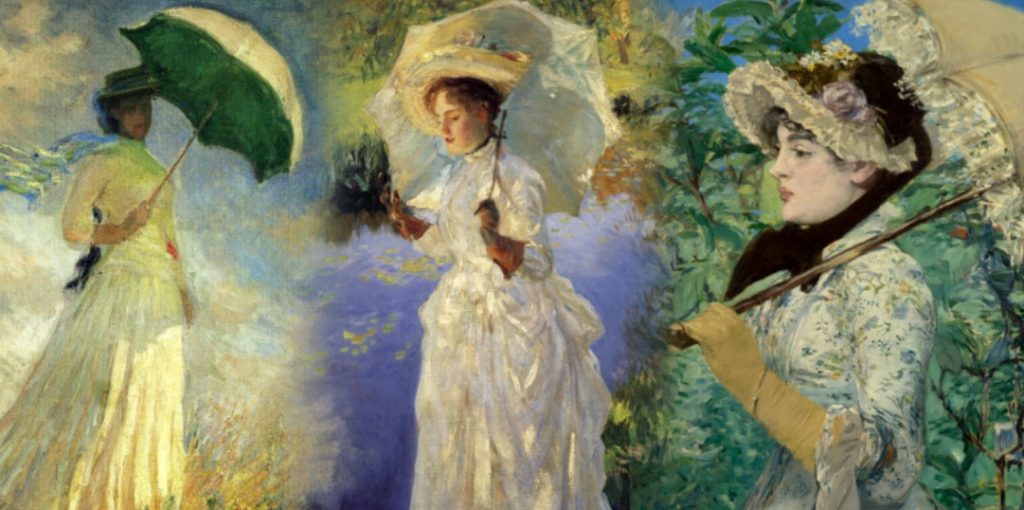
3. Modern Commercial Parasols: Where Heritage Meets Engineering
20th Century Breakthroughs
- 1920s: Art Deco-inspired cantilever parasols debuted at resorts.
- 1950s: Synthetic fabrics (nylon/polyester) improved weather resistance.
Today’s Standards
| Ancient Problem | Modern Solution |
|---|---|
| Fading colors | UPF 50+ acrylic fabrics |
| Wooden pole rot | FSC-certified teak treatments |
| Weak wind resistance | Fiberglass-reinforced ribs |
Case Study: Our 3-layer polyester fabric withstands monsoon rains—an upgrade from traditional oiled silk.
4. Cultural Legacy in Contemporary Design
Regional Influences
- Mediterranean: Wide canopies (like our 4m market umbrellas) echo Roman plaza shades.
- Asia: Bamboo motifs honor Chinese craftsmanship.
Sunny Parasol’s Tribute
We integrate historical elements into commercial-grade products:
- Laser-cut fretwork inspired by Mughal architecture
- Quick-dry fabrics evolved from waxed linen
5. The Future: Sustainable Shade
- Recycled materials: Our EcoShade line uses ocean plastics.
- Solar integration: LED-lit parasols with 10-hour runtime.
“Today’s parasols must balance heritage aesthetics with hotel-grade durability.” — Sunny Parasol R&D Team
Why This Matters for Buyers
✔ Historical wisdom informs our wind-resistant engineering
✔ Cultural designs attract guests at resorts/restaurants
✔ Modern certifications (OEKO-TEX®, ISO 9001) ensure safety
Explore Our Collections:
→ [Traditional Styles with UPF 50+ Fabrics]
→ [Commercial Cantilever Parasols]
